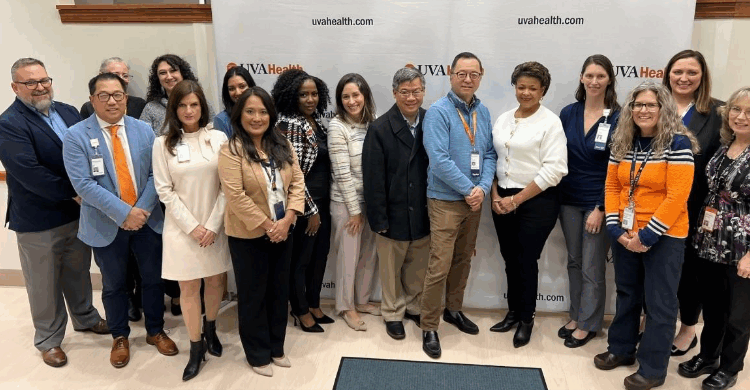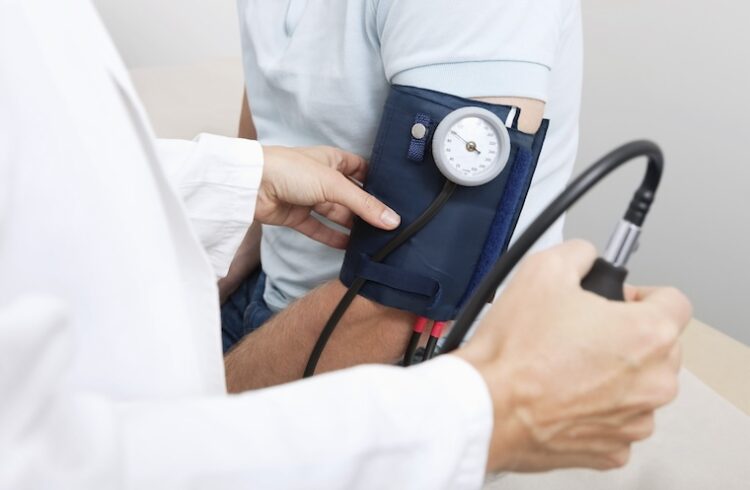
The Virginia Higher Education Opioid Consortium is taking a collaborative approach to battling Virginia's opioid crisis.
The School of Medicine is leading a statewide effort to battle the opioid crisis and reduce the number of Virginians dying from it.
Opioids are the leading cause of accidental death in Virginia, where the rate of opioid-connected deaths has increased nearly five-fold since 2010. More than 1,240 people statewide died of overdoses involving opioids in 2017, according to the National Institute on Drug Abuse.
In response, UVA is spearheading a five-university consortium that will support the Virginia Department of Behavioral Health and Developmental Services and local community services boards (CSBs). David L. Driscoll, PhD, MPH, the assistant dean of research and the director of the Office of Research at the UVA School of Medicine, is heading up the coalition. Participating universities include UVA, George Mason University, Old Dominion University, Virginia State University and Virginia Tech.
The university-based collaborative, known as the Virginia Higher Education Opioid Consortium (VHEOC), will bring together expertise in diverse areas, ranging from substance misuse, abuse and addiction to economics.
“Virginia’s universities recognize that they have a role to play in helping communities across Virginia to build awareness for, and support prevention and treatment of, substance-use disorders including opioid addiction,” Driscoll said. “Given scarce resources, it is imperative that we work together to provide this support in an integrated and proactive manner. Our strategy is to intended to bolster the capacity of regional health and mental health systems by supporting the efforts of CSBs to deliver quality community services.”
Empowering Community Action Against Opioid Abuse
Community services boards are responsible for delivering community-based behavioral health services to every city and county in the state. By supporting CSBs, the VHEOC will empower local health agencies and leaders to determine the best approaches to prevent, treat and manage opioid-use disorders in their communities.
With resources and funding from the Substance Abuse and Mental Health Services Administration through the Department of Behavioral Health and Developmental Services, the VHEOC will leverage the capabilities and capacities of institutional members to assist the community services boards by providing comprehensive services in areas such as prevention, treatment and data collection and analysis.
Administrators from UVA will oversee the process, and a VHEOC support committee comprised of representatives from each university will facilitate development of proposals in response to requests from CSBs. The CSBs will select the proposals that best fit their needs, and UVA will administer the funds.
VHEOC also plans to hold regular meetings across the state to discuss the work and share lessons learned.
The Power of Collaboration
The collaborative project is funded by $2.5 million from the U.S. Department of Health and Human Services’ Substance Abuse and Mental Health Services Administration. The initial grant is for two years, but the researchers are hopeful that their efforts will ultimately lead to a permanent resource for the commonwealth and its residents.
While Driscoll is leading the effort, he emphasizes the collaborative nature of the project. By leveraging the collective expertise of Virginia’s largest public universities, they can accomplish far more together than they could individually, he believes. “We see a role for our institutions, working either independently or as part of team, in supporting state and local partners,” Driscoll said. “We can provide expertise in data analytics, neuroscience, addiction medicine, economics and comparative effectiveness, workforce development, grant writing, program evaluation and community engagement, just to name a few.”
The new model could have far-reaching usefulness that extends beyond the opioid epidemic, Driscoll said. “I think this has a real opportunity not only to help maximize the potential impact of opioid-response programs but also to develop a new collaborative model by which our public universities can support state programs related to other public health outcomes of concern.”
Consortium contacts:
DBHDS Program Officer: Michael Zohab
Virginia Opioid, Prevention, Treatment and Recovery Project Coordinator
mike.zohab@dbhds.virginia.gov; (804) 381-8537
VHEOC Support Committee:
University of Virginia (lead)
David Driscoll, PhD, MPH
Assistant Dean and Director, Office of Research, UVA School of Medicine DDriscoll@virginia.edu; (434) 297-5731
George Mason University
William Hazel, MD
Senior Advisor for Strategic Initiatives and Policy
whazel@gmu.edu; (703) 403-6802
Old Dominion University
Barbara Blake Gonzalez, EdD
Chief Administrative Officer, Dragas Center for Economic Analysis and Policy; Assistant Professor of Economics, Department of Economics, Strome College of Business
bblakego@odu.edu; (757) 683-4834
Virginia State University
Debra Jones, MPH
Extension Specialist, Human Health
dsjones@vsu.edu; (804) 524-5847
Virginia Tech
Kathy Hosig, PhD, MPH, RD
Associate Professor, Population Health Sciences; Director, Center for Public Health Practice and Research; VCE Public Health Specialist and State Program Leader for Health
khosig@vt.edu; (540) 231-6637
Mary Beth Dunkenberger, MBA
Associate Director, Institute for Policy and Governance
mdunkenb@vt.edu; (540) 231-3979
Kimberly Horn, EdD
Scientist and Research Professor, Virginia Tech-Carilion Fralin Biomedical Research Institute
kahorn1@vt.edu; (540) 526-2184
To keep up with the latest medical research news from UVA, subscribe to the Making of Medicine blog at http://makingofmedicine.virginia.edu.



